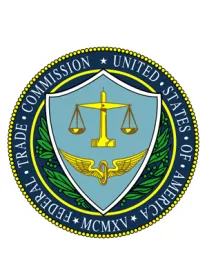In 1995, the Federal Trade Commission and the Department of Justice first issued the Antitrust Guidelines for the Licensing of Intellectual Property. They represent the antitrust enforcement policy of the agencies with respect to the licensing of IP protected by patent, copyright, and trade secret law. The Guidelines have remained unchanged since 1995. Meanwhile, there have been 20-plus years of significant developments in technologies, technology businesses, and the legal landscape of IP licensing.
The agencies have proposed the first update to the Guidelines since they were originally issued. In their press release, the agencies explained that they seek to "modernize" the Guidelines, including making updates to "accurately reflect intervening changes in statutory and case law." They have invited interested parties to submit comments by September 26, 2016.
Incorporating Recent Supreme Court Decisions
Supreme Court precedent established in the last 20 years is reflected in the changes. First, the proposed update expressly highlights that "[t]he antitrust laws generally do not impose liability upon a firm for a unilateral refusal to assist its competitors, in part because doing so may undermine incentives for investment and innovation."
Second, it adopts "the conclusion that a patent does not necessarily confer market power upon the patentee."
Third, the agency seeks to bring its enforcement policy in line with established Supreme Court precedent regarding resale price maintenance. The agencies "will apply a rule of reason analysis to price maintenance in intellectual property licensing agreements"—i.e., where a licensor conditions a license on the resale price of the product incorporating the licensed technology. The update notes, however, that some states continue to prohibit minimum RPM as being per se illegal.
Highlighting Procompetitive Benefits of IP Licensing Arrangements
The proposed update highlights the importance of IP licensing and of the patent system. Consistent with the agencies' prior practice, the proposed update generally seeks to leave licensing decisions to the parties, their negotiations, and market forces. For example, it now begins a discussion of a hypothetical licensing scenario by emphasizing the "procompetitive benefits" of the licenses described. The discussion also makes clear that, when the agencies consider licensing arrangements, they will focus on whether "any provision[]" in the arrangement—not the arrangement in its entirety—is likely to harm competition.
The proposed update seeks to recognize the legality of innovative licensing programs and practices that have been reviewed by the agencies over the years. It explains that "DOJ has reviewed favorably several patent pools with safeguards in place to mitigate potential anticompetitive harms." It also explains that "[a] number of the pooling arrangements that the Department of Justice reviewed contained mechanisms to narrow the scope of grantbacks, making them more likely to be procompetitive." These safeguards are not required by the Guidelines, and the agencies continue to make clear that they "will assess the particular facts of every case."
Explaining the Agencies' Review and Enforcement Policies as to IP Licensing
The proposed update reflects the agencies' antitrust enforcement experience in the IP licensing arena. It highlights that the agencies may "impose licensing requirements to remedy anticompetitive harm or, in the case of a merger, to prevent the substantial lessening of competition." And, when determining whether a firm is a potential competitor that would have entered a market in the absence of a particular licensing arrangement, the proposed update makes clear that "[t]he type and extent of evidence needed [to make that determination] will vary with the circumstances."
Additionally, the proposed update now discusses market definition and market share measurement by using the agencies' 2010 Horizontal Merger Guidelines. Specifically, the proposed update moves away from the existing focus on "goods markets" and highlights recent cases where courts have defined "technology markets." The proposed update also makes changes to the existing discussion of "innovation markets" and instead adopts the concept of "research and development market[s]." The definition of such markets has been retooled to focus on "the assets comprising research and development" and expanded to include R&D that is "related to the identification of a commercializable product." Given the FTC's enforcement history, health care companies that invest in research and development of new products will want to pay close attention to these proposed changes.
Other Notable Changes
There are various other notable changes, including: a new discussion on how the agencies will apply the rule of reason to licensing restraints; the recognition of the use of partially exclusive licenses (such as field of use licenses); the inclusion of a list of factors the agencies will use in evaluating close substitutes to licensed technology at issues; a more detailed explanation of the "sham litigation" exception to Noerr-Pennington immunity; and, notice that the agencies may apply a merger analysis to "a transaction involving a license that does not fall within the traditional definition of an exclusive license but in substance transfers intellectual property rights and raises the same potential antitrust concern."
Comments Due by September 26, 2016
The agencies have invited all interested parties, including technology owners and licensors, to submit comments about the proposed update. The agencies will consider and discuss these comments—and possibly incorporate them into further changes—before finalizing and publishing a new version of the Guidelines. Consequently, licensors should seriously consider submitting in order to present their views on the Guidelines that will be used to evaluate their existing and future licensing programs and practices. Moreover, because the comments will be made publicly available, this serves as an opportunity for associations and trade groups to bring attention to any views they may have about the agencies' antitrust enforcement policies of IP licensing arrangements.







 />i
/>i

